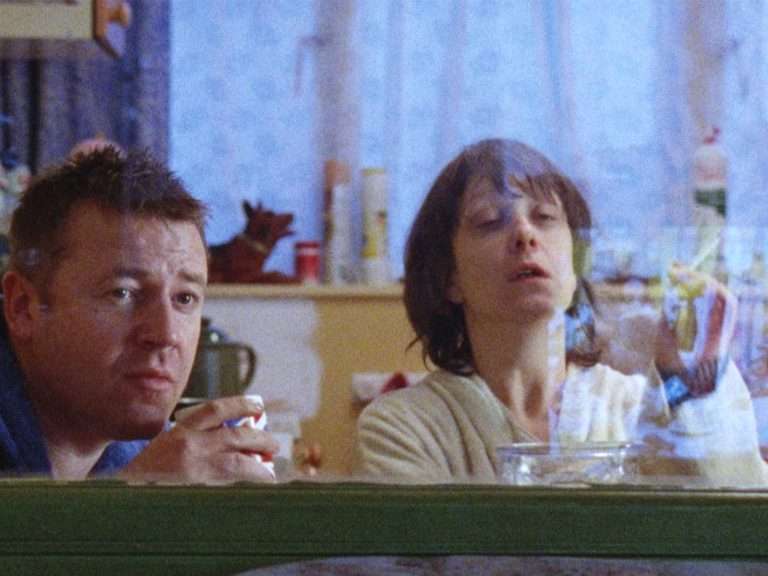I recently re-watched A Few Good Men. Beyond Tom Cruise’s charm and Aaron Sorkin’s compellingly scripted courtroom dialogue, something struck me. Lance Corporal Dawson, in the beginning, when he meets Cruise’s Lt. Daniel Kaffee, describes the Marine code of conduct as “unit, corps, God, country”. His stout disposition reflects his commitment and belief in that code. They are not just words; it is how he lives his life. These words are etched in stone for cadets like Dawson, guiding them through the conundrum of their existence and giving them meaning. In the film’s climax, Dawson and Downey are dismissed from service on being found guilty on charges of “conduct unbecoming of a marine”. PFC Downey innocuously says, “We did nothing wrong!”, to which Dawson replies, “We were supposed to fight for people who couldn’t fight for themselves.
Reconciling this divide is something that prompted this think piece. It has become a thing in movies around war to jostle the viewer in the conflict to judge the actions of movie characters that are not so easily repeated in real life. Two recent releases, Top Gun: Maverick (2022) and Devotion (2022) both feature instances where officers refuse orders and save lives. And the list of examples does not end here. On countless occasions, cinema has thrown us these situations where the virtues of the moral duty of being a soldier and that of battlefield heroics are at loggerheads. It is left up to the viewers to judge the actions keeping their sensitivities in the backdrop. The question that must be asked here is what truly matters in the end.
And it must be stated unequivocally that the discussion is not aimed at undermining military personnel or their contributions to our respective countries, or, more importantly, the values they represent. The philosophical ethos that beckons this think piece is rooted in the different shades of morality that justify actions. The military, as an edifice, is tasked with the utmost important task of national security. Like Colonel Jessup (Jack Nicholson) says to Kaffee in the final arguments, “Son, this world is divided by walls and those walls need to be guarded by men with guns”. Without the armed forces, there are high chances society descends into chaos and individual countries then stand incapable of defending its people.
In these special situations that Hangman and Rooster (from Top Gun), Hudner and Brown (from Devotion), and Dawson and Downey (from A Few Good Men), face a severe dilemma: whether to follow the order and thus fulfill your battlefield obligations, or to ignore the order and save the man. Even though the preservation of life seems like the foremost responsibility, that choice often stands opposite to that of following orders. Deciding which to do requires the perception in the first place that one indeed has a choice. Hardened professionals like Jessup exemplify the tenacity and unyieldingness required to uphold values and belief systems in the face of adversity. No matter what the circumstances are, they stand their ground, unwilling to compromise.
They feel superior to other men who perhaps find chinks in their moral armors to accommodate such situations. That righteousness has its own significance when it comes to decisiveness on the battlefield. In Top Gun: Maverick, Cyclone (Jon Hamm) quickly took the decision to call back his airmen when he sensed that prolonging their stay would have endangered their lives. Even though he and Jessup cannot be directly compared, they share the same moral quandary. Had Hangman followed the orders and “hung back” (pun intended), his mates would not have made it out of the sky alive.

Such acts of defiance are significant and uncommon. They command a level of bravery and character that few men possess. . Reconciling the conflict needs clarity of thought and purity of heart. And even when these elements are present, it needs a distinct je na se quois to follow through on that crucial marriage. Does this representation of emotion make the men in question weak in the eyes of their superiors or in general? Movies seem to believe otherwise. And moviegoers seem to appreciate that notion.
Another factor that influences decision-making is the camaraderie that the military fosters. It awakens a part of us and rigorously imprints it into our lifestyles and thought processes that compel us to never abandon our mates. That strong relationship has been the subject of intense exposition in films. Bubba and Forrest, Maverick and Goose, Brown and Hudner; the list just goes on. Even when the emphasis is not on two people or a small group, the larger picture in a battalion or regiment is kept in the background.
That brotherhood is the ethos of any film set against the harsh tirades of war and is causally responsible for mounting a challenge against systemic rigidity. In the end, living with oneself takes precedence on an individual level. Guilt for what a soldier does on the battlefield is nearly impossible to dismiss; especially when they feel that a certain tragedy could have been avoided. It is a permanent stain on their conscience, never allowing them to become acquainted with normalcy.
As viewers, our inherent bias causes us to support decisions on the other side of the coin. Even in those circumstances, men like Jessup appear irrelevant and antagonistic. However, changing one’s mindset is a futile task. As long as this reconciliation is depicted in films about war or the armed forces, the heroes who think with their hearts will always triumph over those who think with their heads.







